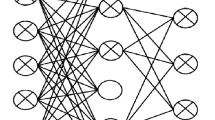Abstract
Emotion is the most important gear for human textual communication with each other via social media. Nowadays, people use text for reviewing or recommending things, sharing opinions, rating their choices or unlikeness, providing feedback for different services, and so on. Bangladeshi people use Bangla to express their emotions. Current research based on sentiment analysis has got low-performance output by using several approaches on detecting sentiment polarity and emotion from Bangla texts. In this study, we have developed four models with the hybrid of Convolutional Neural Network (CNN) and Long Short Term Memory (LSTM) with various Word Embeddings including Embedding Layer, Word2Vec, Global Vectors (Glove), and Continuous Bag of Words (CBOW) to detect emotion from Bangla texts (words, sentences). Our models can define the basic three emotions; happiness, anger, and sadness. It will make interaction lively and interesting. Our comparisons are bestowed against CNN, LSTM with different Word Embeddings, and also against some previous researches with the same dataset based on classical Machine Learning techniques such as Support Vector Machine (SVM), Naïve Bayes, and K-Nearest Neighbors (K-NN). In our proposed study, we have used Facebook Bangla comments for a suitable dataset. In our study, we have tried to detect the exact emotion from the text. And in result, the best model integrating Word2Vec embedding layer with a hybrid of CNN-LSTM detected emotions from raw textual data with an accuracy of 90.49% and F1 score of 92.83%.
Access this chapter
Tax calculation will be finalised at checkout
Purchases are for personal use only
Similar content being viewed by others
References
Sarkar, K.: Sentiment polarity detection in bengali tweets using deep convolutional neural networks. J. Intell. Syst. 28(3), 377–386 (2019). https://doi.org/10.1515/jisys-2017-0418
Emon, E.A., Rahman, S., Banarjee, J., Das, A.K., Mittra, T.: A deep learning approach to detect abusive Bengali text. In: 2019 7th International Conference on Smart Computing & Communications (ICSCC) (2019). https://doi.org/10.1109/icscc.2019.8843606
Hassan, A., Mohammed, N., Azad, A.: Sentiment Analysis on Bangla and Romanized Bangla Text (BRBT) using Deep Recurrent models, October 2016. https://arxiv.org/abs/1610.00369. https://www.researchgate.net/publication/308831680_Sentiment_Analysis_on_Bangla_and_Romanized_Bangla_Text_BRBT_using_Deep_Recurrent_models/citation/download
Banik, N., Rahman, M.H.H.: Evaluation of naïve bayes and support vector machines on bangla textual movie reviews. In: 2018 International Conference on Bangla Speech and Language Processing (ICBSLP), pp. 1–6 (2018). https://doi.org/10.1109/ICBSLP.2018.8554497. https://ieeexplore.ieee.org/document/8554497
Abdul-Mageed, M., Ungar, L.: EmoNet: Fine-grained emotion detection with gated recurrent neural networks. In: Proceedings of the 55th Annual Meeting of the Association for Computational Linguistics, vol. 1, Long Papers, Vancouver, Canada, pp. 718–728 (2017). https://doi.org/10.18653/v1/p17-1067
Das, D., Bandyopadhyay, S.: Developing Bengali WordNet Affect for Analyzing Emotion (2010). https://www.semanticscholar.org/paper/Developing-Bengali-WordNet-Affect-for-Analyzing-Das-Bandyopadhyay/cb8e29ffe894321a34aa50d302d022f207e5a73a
Banik, N., Rahman, Md.: Toxicity Detection on Bengali Social Media Comments using Supervised Models, November 2019. https://doi.org/10.13140/RG.2.2.22214.01608
Irtiza Tripto, N., Eunus Ali, M.: Detecting multilabel sentiment and emotions from Bangla youtube comments. In: 2018 International Conference on Bangla Speech and Language Processing (ICBSLP), Sylhet, pp. 1–6 (2018). https://doi.org/10.1109/icbslp.2018.8554875
Abujar, S., Masum, A.K.M., Mohibullah, M., Ohidujjaman, Hossain, S.A.: An approach for Bengali text summarization using Word2Vector. In: 2019 10th International Conference on Computing, Communication and Networking Technologies (ICCCNT), Kanpur, India, pp. 1–5 (2019). https://doi.org/10.1109/icccnt45670.2019.8944536
Canales, L., Strapparava, C., Boldrini, E., Martinez-Barco, P.: Intensional learning to efficiently build up automatically annotated emotion corpora. IEEE Trans. Affect. Comput. 1–1 (2017). https://doi.org/10.1109/taffc.2017.2764470
Rahman, M.A., Seddiqui, M.H.: Comparison of classical machine learning approaches on Bangla textual emotion analysis. ArXiv:190707826 Cs. http://arxiv.org/abs/1907.07826 (2019). Accessed 19 Mar 2020
Azmin, S., Dhar, K.: Emotion detection from Bangla text corpus using Naïve Bayes classifier. In: 2019 International Conference on Electrical Information and Communication Technology (ECIT), Khulna, 1–5 Dec 2019. https://doi.org/10.1109/eict48899.2019.9068797
Sharmin, S., Chakma, D.: Attention-based convolutional neural network for Bangla sentiment analysis. AI Soc. (2020). https://doi.org/10.1007/s00146-020-01011-0
Ahmed, A., Yousuf, M.A.: Sentiment analysis on Bangla text using Long Short-Term Memory (LSTM) recurrent neural network. In: Kaiser, M.S., Bandyopadhyay, A., Mahmud, M., Ray, K. (eds.) Proceedings of International Conference on Trends in Computational and Cognitive Engineering. Advances in Intelligent Systems and Computing, vol. 1309. Springer, Singapore (2021). https://doi.org/10.1007/978-981-33-4673-4_16
Rahman, M., Haque, S., Saurav, Z.R.: Identifying and categorizing opinions expressed in Bangla sentences using deep learning technique. Int. J. Comput. Appl. 176(17), 0975–8887 (2020)
Author information
Authors and Affiliations
Corresponding author
Editor information
Editors and Affiliations
Rights and permissions
Copyright information
© 2021 Springer Nature Switzerland AG
About this paper
Cite this paper
Hoq, M., Haque, P., Uddin, M.N. (2021). Sentiment Analysis of Bangla Language Using Deep Learning Approaches. In: Chaubey, N., Parikh, S., Amin, K. (eds) Computing Science, Communication and Security. COMS2 2021. Communications in Computer and Information Science, vol 1416. Springer, Cham. https://doi.org/10.1007/978-3-030-76776-1_10
Download citation
DOI: https://doi.org/10.1007/978-3-030-76776-1_10
Published:
Publisher Name: Springer, Cham
Print ISBN: 978-3-030-76775-4
Online ISBN: 978-3-030-76776-1
eBook Packages: Computer ScienceComputer Science (R0)




